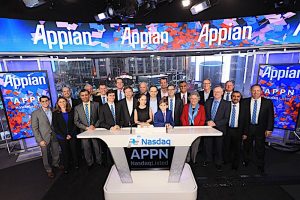The Internet Watches with Bated Breath, FCC Votes on Net Neutrality Tomorrow
![]() The ground-shaking vote within the Federal Communications Commission covering how the Federal government will choose to regulate how Internet providers and carriers will treat traffic on their networks happens tomorrow. As a result, a multitude of political parties, industry interests, and others wait with bated breath as their factors and lobbyists furiously send letters, make phone calls, and continue to attempt to sway minds and hearts in their direction.
The ground-shaking vote within the Federal Communications Commission covering how the Federal government will choose to regulate how Internet providers and carriers will treat traffic on their networks happens tomorrow. As a result, a multitude of political parties, industry interests, and others wait with bated breath as their factors and lobbyists furiously send letters, make phone calls, and continue to attempt to sway minds and hearts in their direction.
In what has become an obviously politically divisive issue, as All Things Digital reports, seems to have an obvious split between Congressional Republicans and Democrats. For some background, it’s currently unknown if the FCC even has the authority to govern Internet and fiber networks in the manner necessary to employ Network Neutrality according to their mandate,
Earlier this year, FCC Chairman Julius Genachowski was dealt an important setback when the U.S. Court of Appeals ruled that FCC doesn’t have the legal authority to impose net neutrality rules on broadband providers. In hopes of still finding a way to reign in the providers, he’s since circulated new proposed rules that would require providers to disclose what kind of traffic they intend to throttle and why, giving consumers a little more information so they can make a more informed choice when picking a provider. And in a speech on Dec. 1 Genachowski also expressed support for “usage based pricing,” which would essentially allow providers to charge variable pricing plans where consumers would pay higher fees for using higher amounts of bandwidth.
Certain Internet companies that aren’t providers, but who rely on having unfettered pipes through which they can deliver their services, aren’t happy with the proposed rules either. Companies like Amazon, Skype and Netflix, want stronger rules that will prevent the providers from slowing down traffic from their sites or blocking them altogether. They’ve even pushed the FCC to reconsider regulating the Internet outright as a telecommunications service as it does the telephone system today, an idea the Genachowski briefly considered, then abandoned.
Republican commissioner Robert McDowell has already pledged to vote against the rules, which he states will stifle Internet innovation; and Commissioner Meredith Baker Attwell, also Republican, vowed to vote against the rules noting that the powers to regulate the Internet belongs to Congress, not the FCC. Meanwhile, Congressional Democrats are pressing for a vote with the rules—but the current atmosphere seems that they’re doing so because they fear it will hurt the current administration. I cannot speak too much to the politics right now, but with the argument over what authority the FCC actually has, the current administration doesn’t really matter.
This whole issue really came to a head when Level 3 filed a complaint with the FCC over counter-competitive practices by Comcast. The complaint prompted the FCC to begin gathering information on the dispute, and to see if in fact it would involve Net Neutrality concepts in the first place. However, the activity of Comcast charging a particular provider more to carry their data did seem strange—although these companies both belong to the market and can contract with one another over what bandwidth they want to send and how it can be used. Net Neutrality, of course, would require carriers to be content agnostic and not charge extra, throttle, or block particular types of content: i.e. no difference between streaming media and large file transfers.
The real problem may come to a head when Comcast acquires NBC Universal—which puts the carrier network into a direct conflict of interest pricing Level 3’s traffic that recently became a conduit for Netflix streaming media.
[Image credit: United States Internet map by Zina Deretsky, National Science Foundation, adapted from maps by Chris Harrison, Human-Computer Interaction Institute Carnegie Mellon University, www.chrisharrison.net.]
A message from John Furrier, co-founder of SiliconANGLE:
Your vote of support is important to us and it helps us keep the content FREE.
One click below supports our mission to provide free, deep, and relevant content.
Join our community on YouTube
Join the community that includes more than 15,000 #CubeAlumni experts, including Amazon.com CEO Andy Jassy, Dell Technologies founder and CEO Michael Dell, Intel CEO Pat Gelsinger, and many more luminaries and experts.
THANK YOU

















